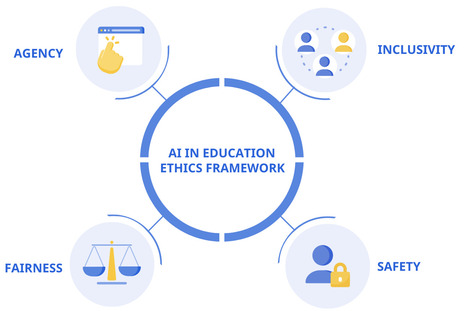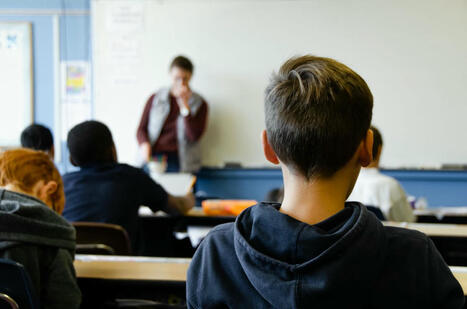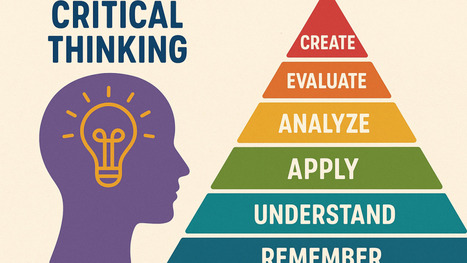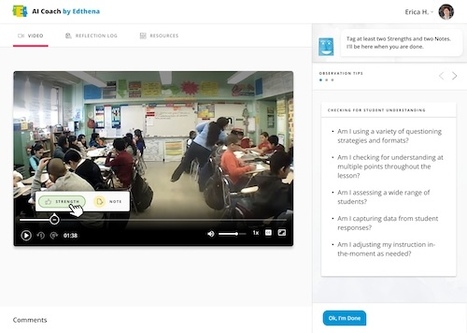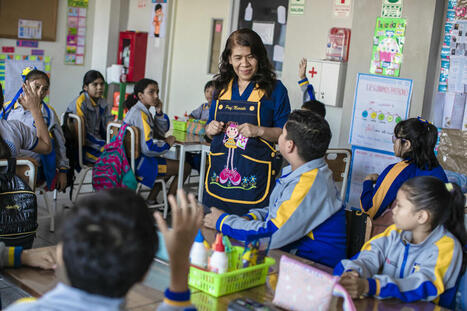
|
Scooped by
Nik Peachey
onto Learning & Technology News May 18, 2011 3:32 AM
|
Get Started for FREE
Sign up with Facebook Sign up with X
I don't have a Facebook or a X account
 Your new post is loading... Your new post is loading...
 Your new post is loading... Your new post is loading...

Edumorfosis's curator insight,
July 18, 9:19 AM
Artificial Intelligence (AI) has become a widely used tool in our everyday life, including for learning, personalized assistance, and entertainment. Therefore, young people must be able to understand how AI works, its societal impact, and how to use it ethically in order to be prepared for a society and economy in the age of AI. “Integrating AI literacy into education is essential to equip students with the critical thinking skills necessary to understand, interact with, and innovate using digital technologies, preparing them to contribute meaningfully to society” (Lidija Kralj) 
Richard Platt's curator insight,
July 19, 3:17 AM
As Artificial Intelligence (AI) increasingly influences how we access information, communicate, and make decisions, AI literacy becomes essential for navigating daily life, creating with purpose, and preparing for the future of learning and work. AI literacy equips learners and educators to understand both the risks and opportunities that AI presents, and to make meaningful and ethical decisions about its use

Richard Platt's curator insight,
July 10, 8:52 AM
Author Ethan Mollick states, "I increasingly find people asking me, 'Does AI damage your brain?” It's a revealing question. Not because AI causes literal brain damage (it doesn't) but because the question itself shows how deeply we fear what AI might do to our ability to think. So, in this post, I want to discuss ways of using AI to help, rather than hurt, your mind. But why the obsession over AI damaging our brains? - This article is well worth reading. - AI can help or hurt our thinking. I particularly like the conclusion, “Our fear of AI's damaging our brains” is a fear of our laziness. The technology offers an easy out from the hard work of thinking, and we worry we'll take it. We should worry. But we should also remember that we have a choice. Your brain is safe. Your thinking, however, is up to you.”

EDTECH@UTRGV's curator insight,
July 4, 11:03 AM
"Paralinguistic voice analysis focuses on non-verbal elements of speech like tone, pitch, volume, pauses and rhythm that convey emotion, intention or attitude. While traditional voice recognition focused on transcribing spoken words, emotional AI adds a new layer: interpreting how those words are delivered. Today’s AI systems use deep learning to identify these paralinguistic features in real time." 
Richard Platt's curator insight,
July 6, 10:31 AM
"Voice technologies are no longer just about recognizing what we say; they are beginning to understand how we say it. As artificial intelligence (AI) advances, it can detect subtle emotional signals in our speech, promising more human-like interactions with machines. Emotional AI is reshaping how voice data is used across industries."

Richard Platt's curator insight,
July 1, 5:40 PM
When we think about media manipulation, we often picture advanced editing software, fake news, or AI-generated deepfakes. But for me, the question starts much earlier and much simpler: can a four or five-year-old understand that a photo might not show what really happened?

Richard Platt's curator insight,
June 30, 1:43 PM
AI has already infiltrated the workforce, so higher ed institutions have a responsibility to teach their students to use it responsibly and effectively. Without clear guidance, training, and inclusion, many Gen Zers risk being left behind in an AI-driven economy. Schools and employers must step up by creating inclusive policies, integrating AI education, and expanding access to tools and training, especially in underserved sectors and communities.

Richard Platt's curator insight,
June 11, 1:29 AM
Purpose The use of Artificial Intelligence (AI) in education has the potential to further customise and personalise students’ learning, and encourage self-directed learning. It can also augment teachers’ professional practice by automating routine tasks and allowing teachers to spend more time...

Richard Platt's curator insight,
June 7, 10:32 PM
AI, ChatGPT, and LLMs "have absolutely blown up what I try to accomplish with my teaching." Nik Peachey's insight Some interesting comments from teachers in this article about how AI has now impacted their teaching |

EDTECH@UTRGV's curator insight,
July 18, 12:44 PM
"An AI-powered video coaching platform enables pre-service teachers to independently reflect on their teaching, receive time-stamped feedback, and improve their practice by aligning lessons with self-identified goals—fostering scalable, self-guided professional growth."
Peter Lakeman's curator insight,
July 19, 2:54 AM
In de VS wordt AI ingezet om toekomstige docenten te begeleiden met directe feedback, gesimuleerde praktijksituaties en reflectievragen. Doel: betere voorberetiding, meer gelijkheid én opschaling van lerarenopleidingen.
� Interessant voorbeeld van hoe AI niet vervangt, maar versterkt. 
Richard Platt's curator insight,
July 19, 3:19 AM
A computerized AI coaching support model enables pre-service teachers to engage in scalable, self-guided reflection for teacher preparation. It is worth having a look at, as it will likely lead to more improvements for Teachers and Instructors.

Richard Platt's curator insight,
July 15, 11:49 AM
Discover how integrating artificial intelligence and critical thinking strategies can foster transformative learning experiences in higher education. Learn how educators can model, guide, and support students in navigating AI with intention, reflection, and integrity. Whilst a lot of articles like this see critical thinking as a tool to apply to AI-generated content, I find myself seeing AI as a tool to critically examine the world

Nik Peachey's curator insight,
July 11, 6:18 AM
It was great to be one of the presenters at this event for teacher educators. 
Richard Platt's curator insight,
July 11, 12:02 PM
Watch the recording of the webinar from Tuesday 8 July 2025 to explore how teacher educators can help teachers partner with AI to identify relevant and credible research, and extract insights that inform their classroom practice.

Nik Peachey's curator insight,
July 1, 8:04 AM
Here’s a recording of my webinar presentation for ICC. This one is on - Prompting for AI-Mediated Autonomous Teacher Development 
Richard Platt's curator insight,
July 1, 5:42 PM
With the increased use of generative AI to do many of the tasks we have long associated with teaching and learning, there is a genuine concern that, rather than supporting and developing learning and understanding, AI may be used in a way which is negating the need for it. In this session, Nik will look at an alternative method of prompting and how it can lead to deeper cognitive engagements and better metacognitive understanding. Nik demonstrates and shares several prompts that are specific to teacher development that participants can try out and evaluate for themselves.

Richard Platt's curator insight,
June 30, 1:42 PM
A short article with some suggestion on AI and critical thinking

Richard Platt's curator insight,
June 30, 1:42 PM
Artificial intelligence is no longer a distant possibility. It is a defining reality of our present moment. From predictive analytics in admissions to generative AI tools shaping classroom practice and research workflows, AI is rapidly transforming higher education. Yet this transformation is not simply technological. It is cultural, ethical, and institutional. The question before us is not whether we will use AI but whether we will guide its use with purpose, clarity, and care.

Richard Platt's curator insight,
June 16, 3:00 AM
We see increasing levels of disengagement from the curriculum. Fewer students carry on to higher education. The intellectual elites become smaller and more powerful, but we also see a disruption. Academia is peeled away. Innovation occurs outside of the walls of schools. -- This article from the AI English Teacher looks at how we can educate students in the future to ensure that we aren’t just evaluating their use of AI and also touches on why this probably won’t happen. Can you guess why? - Well worth reading https://theaienglishteacher.wordpress.com/2025/06/14/two-futures-a-choice-for-education-in-the-age-of-ai/

Richard Platt's curator insight,
June 11, 1:30 AM
Then Pedraza was introduced to Microsoft 365 Copilot Chat, the AI companion that helps with work tasks. A group of AI experts recently trained him on how to write effective prompts to quickly generate personalized activities for the students just by typing a few traits of each. He was amazed by the results. From skepticism to success: How AI is helping teachers transform classrooms in Peru - Very positive report as you would expect from Microsoft: https://news.microsoft.com/source/latam/features/ai/world-bank-peru-teachers-copilot/?lang=en |





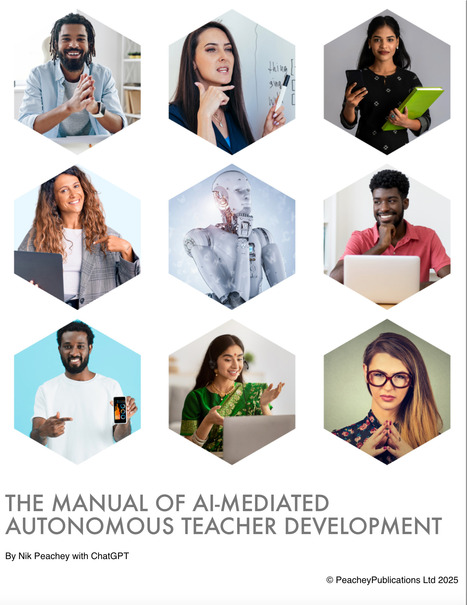
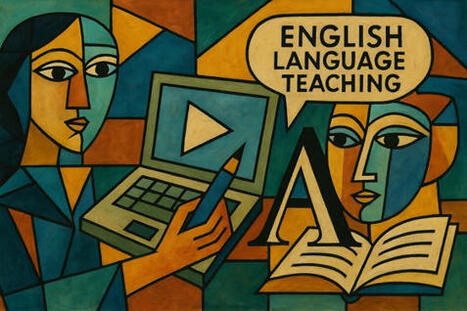
![[PDF] Empowering Learners for the Age of AI | Learning & Technology News | Scoop.it](https://img.scoop.it/NBI8B5kb7A7WyCwnc3ZzHzl72eJkfbmt4t8yenImKBVvK0kTmF0xjctABnaLJIm9)



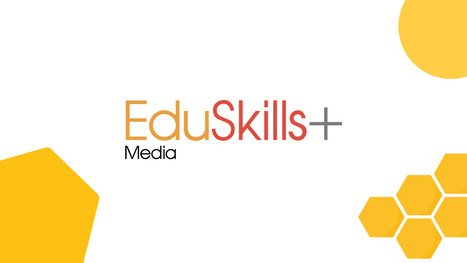


![[PDF] GAIDE: A framework for using Generative AI to assist in Course Content Development | Learning & Technology News | Scoop.it](https://img.scoop.it/iMtIhVYOvt6fW6J15uaAtjl72eJkfbmt4t8yenImKBVvK0kTmF0xjctABnaLJIm9)
